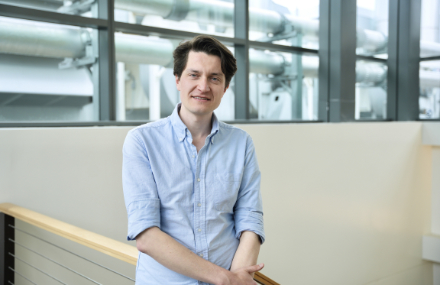Milles Lab - Protein Design
 Research Topics
Research Topics
- Deep Learning-Based de novo Protein Design
- (Single Molecule-) Biophysics
- Protein Mechanics and Folding
- High Throughput Protein Characterization
Research Summary
Our research group at the LMU Gene Center and the MPI of Biochemistry (with support of the DFG Emmy Noether programme) works at the intersection of de novo protein design, deep learning and fundamental biophysics of protein function. We aim to deconstruct biological function by reconstructing such function de novo. Using deep learning based protein design, we construct new-to-nature proteins that incorporate desired functions to better understand their biological mechanism. In particular, we are interested to create synthetic autocatalytic enzymes that can covalently target selected epitopes and self-strengthening catch-bonds, both inspired by bacterial pathogen mechanisms. We rely on our recently developed technology for medium/high (96-192 designs/day) throughput (single-molecule) biophysical characterization. Thus, we can rapidly take proteins from an idea to a blueprint on the computer and finally to the wet lab, and back to study the differences between native and computationally designed protein sequences. Read more...
We are an interdisciplinary group, welcoming applicants with backgrounds in biology, physics, chemistry, engineering or computer sciences. Informal applications for positions are always welcome. Please write to Lukas Milles including a CV and short cover letter explaining your background, motivation, current and especially future research interests, and please provide at least one reference.
Selected Publications
De novo design of protein structure and function with RFdiffusion.
Watson JL*, Juergens D*, Bennett NR*, Trippe BL*, Yim J*, Eisenach HE*, Ahern W*, Borst AJ, Ragotte RJ, Milles LF, Wicky BIM, Hanikel N, Pellock SJ, Courbet A, Sheffler W, Wang J, Venkatesh P, Sappington I, Torres SV, Lauko A, De Bortoli V, Mathieu E, Ovchinnikov S, Barzilay R, Jaakkola TS, DiMaio F, Baek M, Baker D.
Nature. 2023 Aug;620(7976):1089-1100. doi: 10.1038/s41586-023-06415-8 PubMed
Robust deep learning–based protein sequence design using ProteinMPNN.
Dauparas J, Anishchenko I, Bennett N, Bai H, Ragotte RJ, Milles LF, Wicky BIM, Courbet A, de Haas RJ, Bethel N, Leung PJY, Huddy TF, Pellock S, Tischer D, Chan F, Koepnick B, Nguyen H, Kang A, Sankaran B, Bera AK, King NP, Baker D.
Science. 2022 Oct 7;378(6615):49-56. doi: 10.1126/science.add2187 PubMed
Hallucinating symmetric protein assemblies.
Wicky BIM*, Milles LF*, Courbet A*, Ragotte RJ, Dauparas J, Kinfu E, Tipps S, Kibler RD, Baek M, DiMaio F, Li X, Carter L, Kang A, Nguyen H, Bera AK, Baker D.
Science. 2022 Oct 7;378(6615):56-61. doi: 10.1126/science.add1964 PubMed
Calcium stabilizes the strongest protein fold.
Milles LF, Unterauer EM, Nicolaus T, Gaub HE.
Nat Commun. 2018 Nov 12;9(1):4764. doi: 10.1038/s41467-018-07145-6 PubMed
Molecular mechanism of extreme mechanostability in a pathogen adhesin.
Milles LF, Schulten K, Gaub HE, Bernardi RC.
Science. 2018 Mar 30;359(6383):1527-1533. doi: 10.1126/science.aar2094 PubMed


